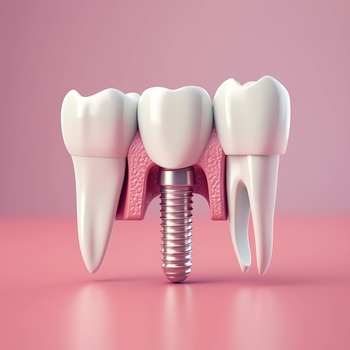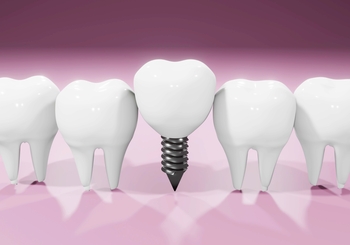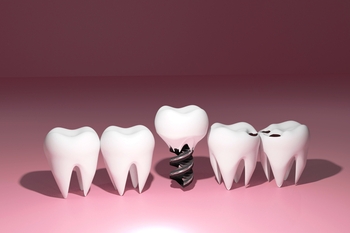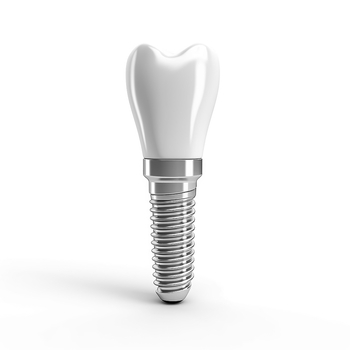Introduction
Maintaining dental health is crucial for overall wellness, and addressing missing teeth is a key part of this. The advent of dental implants has brought significant advancements in the realm of tooth replacement. This blog focuses on the single-tooth implant cost in Australia, exploring the financial and health aspects of opting for a dental implant.
A dental implant is a sophisticated solution for replacing a tooth or multiple missing teeth. It involves a surgical procedure where a titanium implant is inserted into the upper or lower jaw bone, replacing the natural tooth root. This is often followed by bone grafting if there’s significant bone loss. The final step is placing a dental crown, offering a solution that closely mimics natural teeth’ function and appearance.
Our exploration into dental implants in Australia covers the entire dental implant procedure. We’ll dissect the factors affecting the dental implant cost, including the complexities of the procedure, like potential bone grafts and sinus lifts. The role of dental insurance in offsetting some of these costs will also be examined. Additionally, we’ll compare dental implants with other dental treatments like root canal treatments, dental bridges, and dentures, highlighting how implants can improve oral health and prevent issues like gum disease and further tooth decay.
For those considering a dental implant, whether it’s a single tooth implant, multiple implants, or an implant-supported denture, this guide offers a detailed look at the dental treatment costs, the process of implant placement, and the overall benefits. Our goal is to provide you with a comprehensive understanding of the dental implant operation, including the initial cost and any additional procedures, to help you make an informed decision for your dental care.
Understanding Dental Implants

A dental implant is an advanced solution for addressing the issue of lost or missing teeth, ensuring both functional and aesthetic restoration. The structure of a single dental implant is composed of three parts: the implant (root), the abutment (connector), and the dental crown (the visible part that looks like a tooth). The implant, typically crafted from titanium, is surgically placed in the upper or lower jaw bone, which integrates over time, providing a sturdy foundation.
When comparing dental implants with other tooth replacement options, such as dental bridges or implant-supported dentures, implants offer a more permanent and natural-looking solution. They help maintain bone structure, preventing bone loss commonly associated with tooth loss. This aspect is crucial for overall oral health and the preservation of facial structure.
In terms of cost, the price of a single tooth implant in Australia varies widely, influenced by factors like the need for bone grafts, the complexity of the dental implant procedure, and whether additional treatments such as sinus lifts are required. While dental implants may initially appear costlier than alternatives like dental bridges or regular dental implants, they typically offer greater long-term value, potentially reducing future dental procedures and costs.
The dental implant operation is a multi-step process, starting with a thorough assessment by a dental professional to determine the patient’s suitability for the procedure. This may involve evaluating oral health, the condition of the jaw bone, and the presence of conditions like gum disease or tooth decay. Following this, a surgical procedure is conducted to place the implant, after which a healing period is required before the abutment and crown can be added.
Patients considering dental implants should consult a dental office for a comprehensive evaluation and an accurate cost estimate. The consultation should include a discussion about dental health insurance benefits, potential additional procedures, and an assessment of the patient’s specific needs, whether it’s for a single missing tooth, multiple missing teeth, or a more complex scenario.
The Need for Dental Implants
Losing a tooth due to injury, decay, or gum disease can lead to significant challenges beyond just a gap in one’s smile. The absence of a tooth affects oral health, causing bone loss in the jaw, misalignment of remaining teeth, and even further tooth decay and gum disease. The impact extends to one’s quality of life, affecting eating habits, speech, and self-esteem.
Dental implants, including single-tooth implants, are a crucial solution. They are not just cosmetic fixes but functional restorations that replicate natural teeth. The dental implant procedure involves inserting a titanium implant into the jaw bone, supporting a dental crown. This process restores the tooth and stimulates bone growth, preventing bone loss.
In Australia, the cost of dental implants reflects their effectiveness and the complexity of the procedure. While the initial cost, including the single-tooth implant cost, may be higher than other dental treatments like bridges or dentures, implants offer more permanent and health-oriented solutions. They maintain the integrity of the jaw bone and surrounding teeth, improving oral health overall. With the potential aid of dental insurance, the financial aspect becomes more manageable for many, making dental implants a preferred choice for tooth replacement.
Detailed Breakdown of Implant Costs in Australia
The cost of a single tooth implant in Australia is subject to a wide range of factors, leading to a significant price variation. A single dental implant can cost around AUD 3,000. This price typically encompasses the implant surgery, the abutment, and the crown – the three fundamental components of a dental implant.
Key factors influencing the cost include the materials used for the implant and the crown. Titanium implants are generally more affordable, while other materials like zirconia may increase the cost. The level of expertise of the dental professional also plays a role, with more experienced practitioners often charging more for their services.
Geographical location within Australia significantly impacts the cost. Dental services in major cities like Sydney and Melbourne tend to be more expensive due to the higher living and business costs. In contrast, smaller cities or rural areas offer lower prices, though this may come with the added inconvenience of travel for some patients.
Additional dental procedures necessary for implant placement also contribute to the overall cost. Bone grafting is required for patients with insufficient jawbone density, and sinus lifts are examples of such procedures. Pre-implantation treatments like tooth extractions or addressing gum disease also add to the total expense.
There is noticeable cost variation across different regions in Australia. For instance, dental practices in Adelaide or Canberra might offer different pricing structures than those in more expensive cities like Sydney. This disparity is influenced by the local cost of living, operational costs of dental practices, and the competitive landscape in each region.
When considering dental implants, patients must consult with their dental health insurance provider to understand the extent of coverage for such procedures. Some insurance plans may partially cover the costs, especially if the implant is medically necessary.
To comprehensively understand the expenses involved, patients should seek an accurate cost estimate from their dental practice. This estimate should account for the patient’s specific needs, including any additional procedures required for successful implant placement. It’s important to remember that while the initial cost might seem high, the long-term benefits of dental implants often make them a worthwhile investment.
The Dental Implant Procedure
Embarking on the journey of dental implant surgery is a multi-step process that requires precision and expertise. This comprehensive guide will walk you through the stages of a dental implant procedure, often considered a significant investment in oral health in Australia, including the cost factors associated with a single tooth implant.
1. Initial Examination: The procedure starts with a detailed assessment by a dental professional. This includes evaluating the condition of the missing tooth area, checking for bone loss, and planning the implant placement.
2. Preparation Phase: If there is a remaining damaged tooth, it will be extracted. In cases of significant bone loss in the jaw, a bone graft may be necessary to ensure a solid base for the implant.
3. Implant Surgery involves placing a titanium implant into the jaw bone. This step is crucial for the stability and longevity of the implant.
4. Healing and Integration: A critical phase follows the surgery, where the implant must integrate with the jaw bone, a process known as osseointegration. This can take several months, depending on individual healing processes.
5. Abutment Placement: An abutment is attached to the implant after successful integration. This component will support the final dental crown.
6. Crown Placement: The last step is placing the dental crown, meticulously crafted to match the natural teeth, completing the tooth replacement process.
The entire dental implant process, including implant placement and recovery, can span several months, with the number of visits varying based on individual needs. Post-procedure care is crucial for a successful outcome and involves diligent oral hygiene and follow-up visits.
In Australia, the cost of dental implants, especially for a single tooth implant, varies depending on the complexity of the procedure, including the need for bone grafting or sinus lifts. Dental insurance may cover a portion of these costs. The result is a dental solution that enhances the natural appearance and significantly improves oral health, making it a worthy investment for those with missing teeth.
Factors Influencing the Cost of Dental Implants

When considering dental implants in Australia, it’s essential to understand the various factors influencing their cost. Dental implants are a popular and effective solution for replacing missing teeth, offering a natural appearance and improved oral health. However, the cost can vary significantly based on several variables.
Quality of Materials and Lab Fees
The cost of dental implants largely depends on the quality of materials used, such as the titanium implant, dental crown, and the type of dental bridge if needed. Higher quality materials typically result in higher costs but offer greater durability and a more natural appearance. Additionally, lab fees for fabricating these components can add to the overall expense.
Additional Procedures
The dental implant procedure may often involve additional steps, such as bone grafting or sinus lifts, especially in cases of significant bone loss in the jaw. These procedures are necessary to ensure the implant’s stability but can increase the overall cost. For instance, a bone graft is required when the jaw bone is not dense enough to support the implant.
Insurance and Financing Options in Australia
Dental health insurance benefits and financing options available in Australia also influence the cost of dental implants. While regular dental implants may not be fully covered by insurance, certain policies might offer partial coverage. Patients should consult their dental professional and insurance provider for an accurate cost estimate and information about financing options, including payment plans and credit options, to manage the initial cost of the implant procedure.
In summary, the cost of a single or multiple dental implant is affected by the quality of materials, lab fees, necessary additional procedures like bone grafting and sinus lifts, and the specifics of dental insurance and financing in Australia. Patients must discuss with their dental professional to understand the dental treatment costs and explore other tooth replacement options like dental bridges, implant-supported dentures, or a single-tooth implant procedure.
Benefits and Risks of Dental Implants

Dental implants offer a range of long-term benefits for those suffering from lost or missing teeth. Unlike other tooth replacement options, such as dentures or bridges, they provide a durable and permanent solution. Dental implants are designed to mimic natural teeth in function and appearance, thus improving oral health and the ability to chew and speak comfortably. They also help preserve the jaw bone and prevent bone loss, a common issue with missing teeth.
However, as with any surgical procedure, dental implants have their own potential risks and complications. These include the risk of infection at the implant site, possible injury or damage to surrounding structures such as blood vessels or other teeth, nerve damage resulting in pain or numbness, and sinus issues when upper jaw implants affect sinus cavities.
The success of a dental implant also heavily relies on the patient’s overall oral health and bone quality. Conditions like inadequate bone structure, which may require bone grafting or the presence of gum disease can complicate the procedure.
Given these factors, the choice of a dental professional is crucial. A qualified and experienced dentist can significantly reduce these risks. They will assess the suitability for dental implants, considering factors like bone density, location of missing teeth, and overall oral health. A comprehensive approach to planning and executing the implant procedure is essential for minimising complications and ensuring the success of the implant.
While the cost of dental implants, particularly in Australia, can be considerable, the decision should not be based solely on price. Choosing a dental practice known for its expertise and high-quality care is essential for ensuring dental implants’ long-term success and safety.
Conclusion

In summary, getting a dental implant in Australia, particularly a single-tooth implant, is a multifaceted process that warrants careful consideration. This blog has outlined the key aspects of dental implants, from the procedure itself to the cost factors involved. Dental implants offer a superior solution to missing teeth, restoring the natural appearance of one’s smile and preserving oral health and jaw bone structure.
While the initial cost of dental implants, including single-tooth implants, may appear steep, it’s important to consider their long-term value. They prevent adjacent teeth from shifting, mitigate bone loss, and enhance oral health, making them a sound investment compared to other tooth replacement options. Dental health insurance benefits in Australia can also alleviate some of the financial aspects of this dental treatment.
The dental implant procedure is comprehensive, involving several stages, from tooth extraction (if necessary) to bone grafting and implant placement. Each step is vital to ensure the implant’s success and durability. The process demands expertise and precision, highlighting the importance of choosing an experienced dental professional.
For those contemplating a dental implant, it’s crucial to consult with a dental professional for an accurate cost estimate and personalised advice. Every dental case is unique; a professional can provide insights specific to your situation. Dental implants represent a significant stride forward in dental care, offering a reliable and long-lasting solution for those with missing teeth. They are not just about replacing a tooth but about restoring confidence, functionality, and quality of life. Are you interested in exploring dental implant options? Connect with our professional dentists at Infinity Dental Care. We’re here to answer all your questions and provide high-quality dental care. Call us at (02) 9159 6237 to schedule your visit and take the first step towards a perfect smile.
Note: Any surgical or invasive procedure carries risks. Before proceeding, you should seek a second opinion from an appropriately qualified health practitioner.
References:
https://www.dentalhealth.org/Blog/dental-implants-and-how-crucial-replacing-teeth-really-is
https://www.verywellhealth.com/what-to-expect-during-a-dental-implant-procedure-1059372
https://www.ncbi.nlm.nih.gov/pmc/articles/PMC6854267/
https://www.realself.com/surgical/dental-implants
https://www.webmd.com/oral-health/guide-expectations-dental-implants

